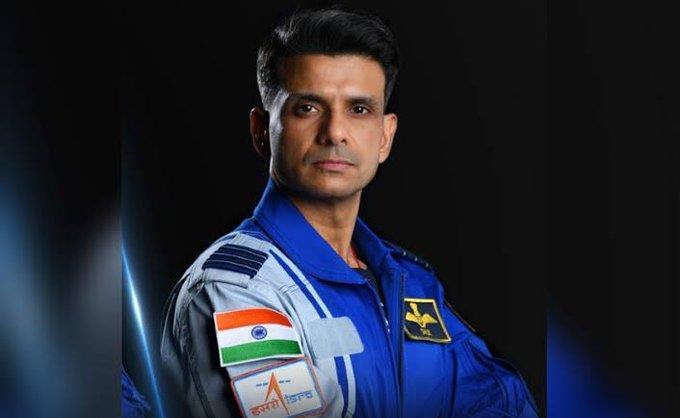"Lot of kids from... will become astronauts in the future": Group Captain Shukla during call with students onboard ISS

Jul 08, 2025
Group Captain Shubhanshu Shukla, the first Indian at the International Space Station (ISS) as part of Axion Mission 4, on Tuesday held an inspirational interaction with the students at the North Eastern Space Applications Centre (NESAC) in Meghalaya, expressing confidence that many children from "small towns, big towns and all kinds of towns" across India will one day become astronauts in the future.
"I think they can and they will. Just keep working hard, and I am going to be back there and will guide you. I am very sure a lot of kids from small towns, big towns, and all kinds of towns will become astronauts in the future," the Group Captain said through a ham radio call from the space station, encouraging the young audience to pursue their dreams relentlessly.
The Group Captain who launched to the ISS on June 25 as part of Axiom Mission 4 shared his insights into his journey and the challenges of space travel he endured during his training as well as his time at the ISS.
He drew similarities between the training as a fighter pilot for the Indian Air Force and the training he received for the mission, noting that a lot of data training was required for becoming an astronaut.
"Training as a fighter pilot in the Indian Air Force and being an astronaut have a lot of similarities. I was benefited because of having the knowledge of the system and being aware of the routine required for such a mission. It did help me a lot. There was a lot of data training we needed to do to become an astronaut," he explained.
On the conditions aboard the ISS, the Group Captain noted they are markedly different from Earth due to microgravity and enhanced radiation.
"The conditions in the ISS are very unique because of microgravity first. That affects a lot of biological processes. The second is the enhanced radiation. As you are aware, the atmosphere and magnetic field of the Earth protect us from the radiation. But in space, the radiation is higher. There are two of the many other aspects that affect the living experience here," he stated.
These factors, including muscle and bone loss due to microgravity, necessitate rigorous health maintenance, with Group Captain Shukla mentioning the use of a treadmill, cycle, and the Advanced Resistive Exercise Device (ARED) for staying aboard the ISS.
"Staying healthy and fit in microgravity is very important because on Earth we have a big load on our body because of gravity... So you have muscle loss and bone loss as well. We have a treadmill in the ISS, a cycle, and a strength training machine called ARED," he noted.
For the Group Captain, safety and emergency preparedness are paramount, as evidenced by the extensive training undertaken for "off-nominal scenarios".
"We train extensively as a team on the ground for all possible scenarios that can go wrong. Maximum training goes into practising for off-nominal scenarios. We are well versed and very well-trained to handle any emergencies that can happen on the ISS," he assured.
The Group Captain also touched on the awe-inspiring view of Earth from space.
"It was a great experience... It was the first time I got to look back at the Earth from above... It was an amazing experience," he recounted.
Group Captain Shubhanshu Shukla, part of Axiom Mission 4, launched on June 25 from NASA's Kennedy Space Centre in Florida at 3:21 am ET on Wednesday, aboard SpaceX's Falcon 9 rocket.
Group Captain Shukla is serving as Mission Pilot on the four-member Axiom Mission 4 and piloted the Dragon spacecraft, which successfully docked with the ISS on June 26, ahead of schedule, autonomously docking at 4:05 pm (IST) to the space-facing port of the space station's Harmony module.
The Ax-4 crew is expected to stay aboard the space station for up to 14 days.